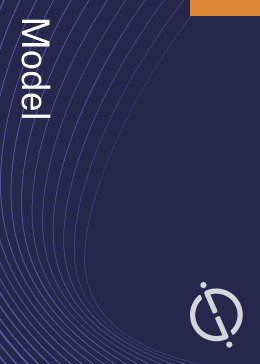Firicabtagene autoleucel is a gene-modified cell therapy commercialized by CARGO Therapeutics, with a leading Phase II program in Diffuse Large B-Cell Lymphoma;Follicular Lymphoma;Primary Mediastinal B-Cell Lymphoma;Marginal Zone B-cell Lymphoma. According to Globaldata, it is involved in 5 clinical trials, of which 2 were completed, and 3 are ongoing. GlobalData uses proprietary data and analytics to provide a complete picture of Firicabtagene autoleucel’s valuation in its risk-adjusted NPV model (rNPV). Buy the model here.

Discover B2B Marketing That Performs
Combine business intelligence and editorial excellence to reach engaged professionals across 36 leading media platforms.
The revenue for Firicabtagene autoleucel is expected to reach an annual total of $133 mn by 2038 in the US based off GlobalData’s Expiry Model. The drug’s revenue forecasts along with estimated costs are used to measure the value of an investment opportunity in that drug, otherwise known as net present value (NPV). Applying the drug’s phase transition success rate to remaining R&D costs and likelihood of approval (LoA) to sales related costs provides a risk-adjusted NPV model (rNPV). The rNPV model is a more conservative valuation measure that accounts for the risk of a drug in clinical development failing to progress.
Firicabtagene autoleucel Overview
Firicabtagene autoleucel (CRG-022) is under development for the treatment of pediatric, young and adult patients with relapsed or refractory acute lymphoblastic leukemia (ALL), refractory or relapsed (r/r) Philadelphia chromosome positive acute lymphoblastic leukemia (Ph positive ALL), diffuse large B-cell lymphoma (DLBCL), primary mediastinal B-cell lymphoma, follicular lymphoma, marginal zone B-cell lymphoma and chronic lymphocytic leukemia (CLL). It is a second generation m971 mAb-derived chimeric antigen receptors (CARs) T-cells transduced with lentivirus targeting CD22. It is administered through intravenous route as an infusion. The therapeutic candidate is developed based on the chimeric antigen receptor (CAR) technology.
CARGO Therapeutics Overview
CARGO Therapeutics (CARGO) is a biotechnology company that focuses on the development of next-generation CAR T-cell therapies for cancer treatment. Its lead product is CRG-022, a novel CAR T-cell product candidate designed to target CD22, a tumor antigen expressed in most B-cell malignancies. The company also develops CRG-023 (tri-specific CAR T with CD2 co-stimulation). CARGO’s products are primarily used in the healthcare industry, specifically for the treatment of patients with large B-cell lymphoma (LBCL) and other hematologic malignancies. Its products are distributed through clinical trials and are aimed at patients who are eligible for CAR T-cell therapies but have limited access due to various challenges. The company operates primarily in the US. CARGO is headquartered in San Mateo, California, the US.
The operating loss of the company was US$99 million in FY2023, compared to an operating loss of US$34.8 million in FY2022. The net loss of the company was US$98.2 million in FY2023, compared to a net loss of US$41 million in FY2022.
For a complete picture of Firicabtagene autoleucel’s valuation, buy the drug’s risk-adjusted NPV model (rNPV) here.
Data Insights
From

The gold standard of business intelligence.
Blending expert knowledge with cutting-edge technology, GlobalData’s unrivalled proprietary data will enable you to decode what’s happening in your market. You can make better informed decisions and gain a future-proof advantage over your competitors.



